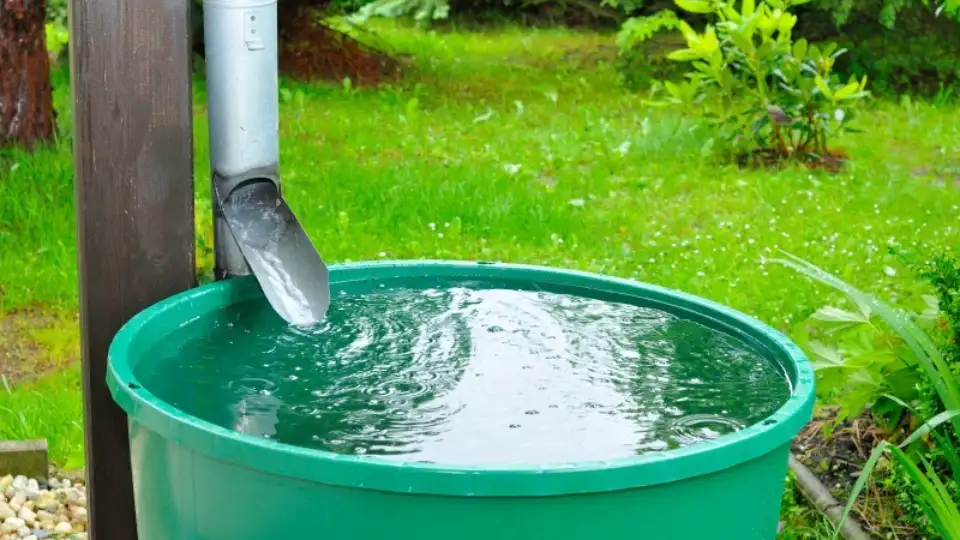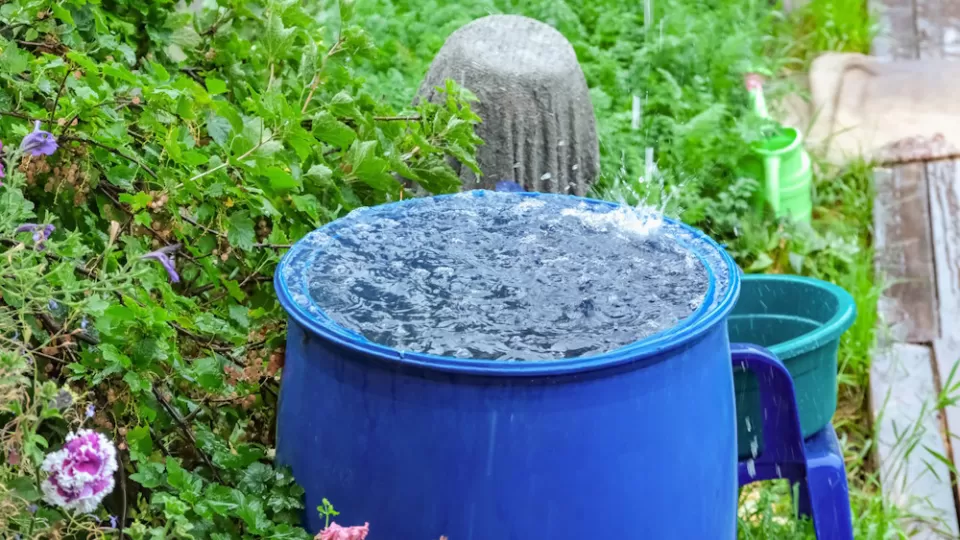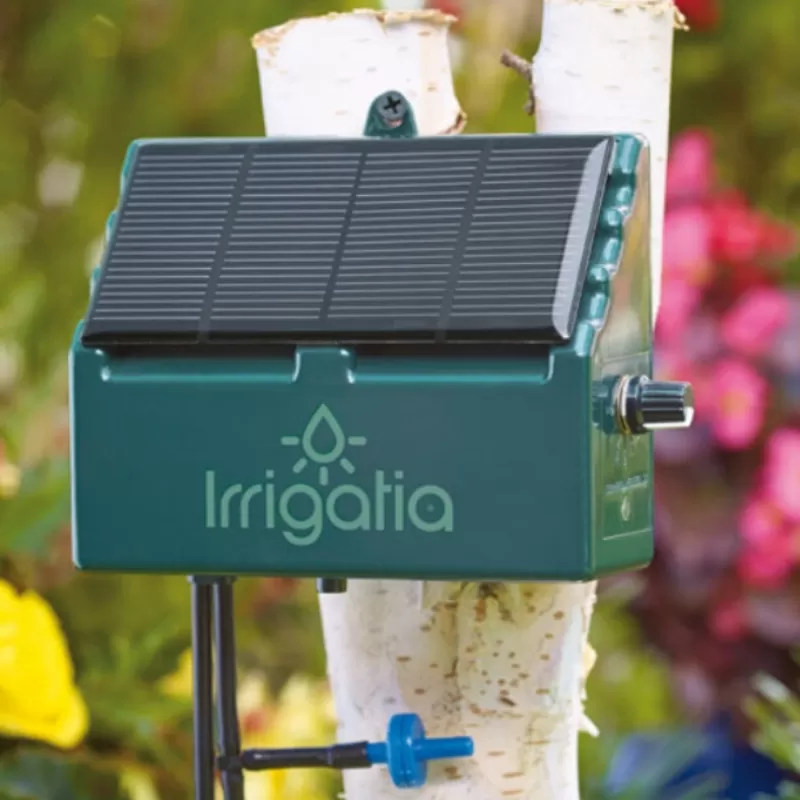Why to collect rainwater for your garden and the planet
Rainwater is a valuable resource, which keeps the whole planet healthy and alive. But over 99% of the water found on earth is in a state that cannot be used by humans. And a whole host of other living things, making it all the more precious. And as of 2022, the average individual in the UK uses 146 litres of water per day. For a four-person household, this could be more than 500 litres of water in a single day.
Find out how you can limit your wasted water use in your garden using a few simple changes. Plus, how an Irrigatia kit can ensure your plants have the perfect amount of water to stay healthy.

Why is collecting rainwater good for the planet?
Being conscious about how much water you use is a good practice to get into for many reasons. One key reason is to reduce your personal carbon footprint. A lot of energy and carbon emissions are produced cleaning and transporting water before it reaches your homes and gardens. Water alone is responsible for 6% of all carbon dioxide emissions in the UK. So trying to reduce how much we use, and potentially waste daily should be a high priority.
Being efficient with water use also minimises how much water is drawn from additional resources. For example, rivers, which is needed by the wildlife who rely on them. By 2050, available water could be reduced by 10 to 15 percent, due to limited water resources and increasing temperatures. Becoming more water-conscious now will be a benefit in the long run.
How is collecting rainwater good for your garden?
Aside from limiting how much you rely on mains water supply, rainwater also has benefits for your plants.
Firstly, rainwater has a neutral pH (7), which means it is leaning toward neither acidity nor alkalinity. Whilst some soils prefer slightly more acidic or alkaline soil, neutral water won’t have a significant impact on the soil’s pH. Tap water, however, has a slightly higher than neutral (alkaline) pH. This may be particularly impactful on plants which prefer acidic conditions, such as magnolias and camellias.
During the summer, as our planet continues to gradually warm, periods of dry weather and drought are likely to increase. As a result, some parts of the country may see hose pipe bans to save water resources. If this becomes the case, having an isolated storage of rainwater may be invaluable for your plants’ health. You can do this easily using water butts, with different sizes, shapes, and materials available to suit your needs.
Not only this but there are nutrients available in rainwater which are not present in tap water. There are nitrates present in rainwater which are not found in tap water. Which is invaluable for photosynthesis, ensuring your plants grow healthily.

How to reduce rainwater waste in the garden
Limiting your water waste is a great way to help the planet. And you can make several small changes in your garden to help with this.
Tactical watering
Introducing one of Irrigatia’s kits into your garden’s watering routine is a sure way to waste less water. These kits draw water from collected resources, such as rainwater from water butts. Plus, they use the power of the sun to automatically water your plants. These kits do not just use the sun for power but as a guide for when to water too. By watering more when the sun is out, Irrigatia kits only use water when the plants need it. It does this via small dripper units. You can also adjust how much water your Irrigatia kit outputs with the controller on the side of the unit.
Other watering methods can also reduce the amount wasted in your garden. For example, avoid watering your lawn, particularly during periods of drought. This is wasted water, as the lawn will recover well once rain returns. but the amount of water wasted doing so can be quite high. It is estimated that hoses and sprinklers use approximately 1000 litres of water in just an hour, water which could be saved.

Drought-tolerant plants
A longer-term solution to reducing your required water amounts in the garden is leaning towards drought-tolerant plants. These cope well in drier conditions. This, overall, could significantly impact your overall watering needs in your garden. Ornamental grasses such as Stipa tenuissima are particularly suited to dry conditions, offering lovely moving interest in the breeze. Mediterranean plants are great performers in drier climates, with the fragrant Lavandula angustifolia and Rosmarinus officinalis offering wonderful scents. And olive trees provide height and structure. For drought-tolerant flowering plants, leaning towards Agapanthus, Verbena, and will provide a variety of colours and interest.
Finally, one way to ensure your plants retain more rainwater is by applying mulch around them. You can use straw or bark. This reduces the risk of competing with weeds for water resources by smothering them. But also, it limits the amount of water lost to evaporation by up to 75%.
Limiting water waste is a great way to contribute to the health of our planet. By using a combination of collected rainwater and an Irrigatia kit, watering your plants becomes a highly efficient, and low-waste process whilst keeping your plants in great condition.



